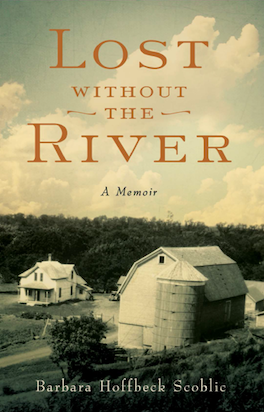
Richard Fluck: You must have written much as an attorney. Among other things, you wrote five editions of Ohio Insurance Coverage. When, over these thirty-eight years plus, did you realize that you wanted to write a crime novel? How did the idea/plot of Pigeon-Blood Red originate?
Ed Duncan: You’re right. I did write quite a bit as an attorney, not including the five editions of Ohio Insurance Coverage. I wrote numerous trial and appellate briefs as well as opinion letters that provided my judgment to clients about whether a given property damage or bodily injury loss was or was not covered by an insurance policy. While that writing wasn’t the impetus for my novel, it gave me the confidence to write a novel.
I had planned to write as a hobby since high school. My eleventh grade English teacher provided the inspiration when she told me that my writing was seldom, if ever, equaled among her students. I never really forgot that high compliment. Then, sometime in the mid-1990’s I read The Maltese Falcon by Dashiell Hammett, which I thought was brilliant. That got me started thinking about writing a crime novel. Sometime later I was in Honolulu attending a legal seminar when the germ of an idea for a novel came to me.
In my mind’s eye I saw a woman — mysterious and beautiful — traveling alone in Honolulu and on the run from someone dangerous who was trying to get his hands on something valuable she had in her possession. Only much later did I decide that the valuable object would be a pigeon-blood red ruby necklace. I also saw a lawyer, my alter ego, coming to the woman’s rescue. These were meant to be the two main characters. The shadowy hit man, however, fought to become the central focus of the narrative and to a large extent, he succeeded.
After numerous fits and starts, the basic idea above was fleshed out as I worked on it at night and on weekends over the coming months and years.
Richard: What was it like to write a crime novel instead of legal briefs and the books about insurance coverage in Ohio? What came easy? What was difficult?
Ed: The easiest comparison is that the legal briefs and insurance coverage books were work while the novel was pleasure. Also, as a lawyer, I couldn’t create the facts or law; they were given. But I could let my imagination soar while writing my novel. At times, my characters even took over the narrative and occasionally had to be reined in. That obviously couldn’t happen in my law practice.
Writing dialogue is much easier for me than exposition. I’m not sure why that is but I always have to work harder at the latter, and I have to work particularly hard at descriptive passages, which as a result are kept to a bare minimum in Pigeon-Blood Red.
Richard: I think readers often assume that lawyers who write crime novels use their legal experience as a foundation for their stories. Is that accurate? Did you have to do a lot of research for Pigeon-Blood Red?
Ed: It is certainly true for some lawyers who write crime novels but I’m not sure it’s true for most. I think it’s more true for John Grisham and Scott Turow, for example, than for David Baldacci. The fact that Paul is a lawyer is incidental to the story line in Pigeon-Blood Red and probably will be in the other two novels in the trilogy, although we may see him in a courtroom setting a little more in the latter two novels.
I did have to do a fair amount of research for the novel. I knew nothing about rubies and once I determined that jewelry would be the story’s “Mcguffin,” to use Hitchcock’s terminology, I stumbled upon pigeon-blood red rubies, which research showed have an exotic history. I also know nothing about firearms and had to research the Sig Sauer .45 used by Rico, the hit man.
Richard: Do you have favorite authors of crime novels? Was any one author a particular model or inspiration for Pigeon-Blood Red? If so, why?
Ed: As suggested by my answers above, probably my favorite crime novelist is Dashiell Hammett. He is followed closely by Lee Child, although it’s hard to categorize his novels as strictly “crime” or even as strictly “thrillers.” I also like Dennis Lehane and Walter Mosley. I’ve been influenced by the writing of all of these authors, but I think my dialogue is inspired particularly by Dashiell Hammett and Lee Child. Their characters’ dialogue is especially authentic and realistic.
Richard: Who were the early influences in your life with regard to reading and writing?
Ed: I was a late bloomer in the sense that I didn’t develop a love for reading until high school. My biggest influence there was probably my eleventh grade English teacher, Mrs. Shropshire. She’s the one who told me my writing was seldom equaled among her students. Authors I discovered in high school and college who influenced me include Ernest Hemingway, James Jones, Somerset Maugham, Richard Wright, Ken Follett, Theodore Dreiser, Norman Mailer, and Frederick Forsyth.
Richard: When you were growing up, what were your favorite books?
Ed: As I mentioned, I was a late bloomer. I can, however, remember being greatly affected by Great Expectations, How Green Was My Valley, and The Good Earth.
Richard:Do you credit Oberlin College with helping you develop as a writer? If so, how did that unfold?
Ed: Interestingly, my major in college was Romance Languages with an emphasis in Spanish, and I probably did more writing assignments in Spanish than I did in English for my English Literature classes! Nevertheless, I’m certain that my exposure to great writers in English Literature and Comparative Literature courses helped me to gain an appreciation for excellent writing, which I suspect influenced my own writing. Of course, critiques of my writing by wonderful professors improved my writing as well.
Richard:What would you say to a young person about the importance of being a lifelong reader?
Ed: Of course, only a small fraction of readers ever expect to become writers, so the point is not to become an author. Reading is an enriching experience in and of itself and the earlier one starts, the greater the rewards. One of the disappointments in life is that there is never enough time to read every book, fiction and nonfiction, we would like to read, especially with today’s electronic distractions. If you are a lifelong reader, you have a head start on a journey that will last through adulthood and will take you to places and expose you to ideas you wouldn’t be able to experience in a hundred lifetimes.
Richard: When can your readers expect to see the second book of the Pigeon-Blood Red trilogy?
Ed: I am hard at work on the second novel now. I don’t have a title yet but I hope to have it completed by the end of the year, and I hope to have it published in the spring of 2017. Pigeon-Blood Red was initially published by a small publisher that ceased operations about six months after the novel was published. I’m self-publishing it until the second novel is ready, at which time I’ll start the search for another publisher for both novels. The third novel already exists in the form of an unproduced screenplay (the title is Rico Stays), which I’ll convert to a novel. I’m aiming to publish that one in the spring of 2018.







3 comments
Really interesting interview. It’s amazing how fictional characters can take hold in the writing process. I love this quote from the interview: “The shadowy hit man, however, fought to become the central focus of the narrative and to a large extent, he succeeded.”
Makes me want to try my hand at a crime novel. Great Interview!
Insightful interview. Thanks!
Comments are closed.